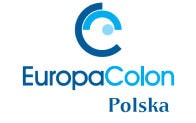Functional Outcomes Following Anal Cancer Treatment
NCT01853059
Observational
Unknown status
FOFACT
Anal cancer is treated with chemoradiotherapy- combined chemotherapy and radiotherapy. This is very successful (75% long term survival). During the course of the radiotherapy, other organs in the pelvis may be damaged. This can lead to long-term problems with possible changes to the skin, bowels with diarrhoea and incontinence problems, bladder shrinkage and incontinence of urine, sexual problems including impotence and ejaculatory problems, or pain during sexual intercourse with vaginal dryness and shrinkage. Patients should be offered help with these side effects. At present, there is very little information on the effect treatment has on a patient's quality of life, making it difficult to judge if new treatment methods are better. This project will measure quality of life from the patient's perspective after treatment for anal cancer. It will also gather preliminary data on quality of life after the introduction of a new technique for more precise 3D-targeting of radiotherapy beams at the cancer, called IMRT.
Oct 31,2013
All
18 Years
N/A
18 Years
N/A
176

